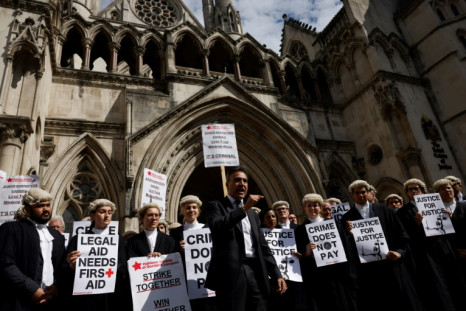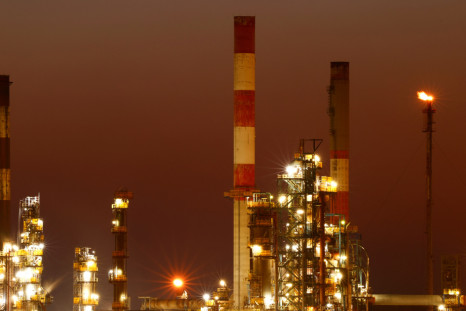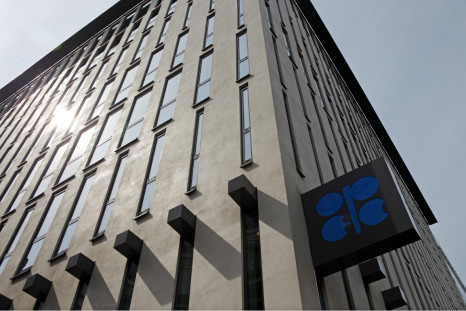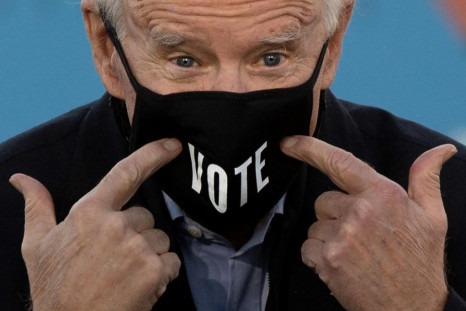Home
> OPEC
OPEC
Oil prices ease as Aramco says ready to boost crude output
Oil prices dropped for a second session on Monday after the head of the world's top exporter, Saudi Aramco, said it is ready to ramp up output while production at several offshore U.S.
OPEC, unlike IEA, sees lower 2022 oil demand growth
OPEC on Thursday cut its 2022 forecast for growth in world oil demand for a third time since April, citing the economic impact of Russia's invasion of Ukraine, high inflation and efforts to contain the coronavirus pandemic.
Oil falls on demand concerns, greater supply
Oil prices fell in early Asian trade on Thursday as traders anticipated more supply of crude entering the market coupled with weaker demand.
Oil prices dip after industry data shows U.S. crude stockpiles rising
Oil prices edged lower on Wednesday, after industry data showed U.S. crude inventories unexpectedly rose last week, signaling a potential hiccup in demand.
BP profit triples to $9.3 bn on soaring energy prices
Net profit hit $9.3 billion in the three months to June -- a threefold increase from the same period last year, the company said in a results statement.
Oil slips as global demand concerns weigh, OPEC+ meeting eyed
Oil slipped on Tuesday as investors absorbed a bleak outlook for fuel demand with data pointing to a global manufacturing downturn just as OPEC+ producers meet this week to decide whether to increase supply.
Big oil set to open cash taps with another record quarter
Top Western energy companies are expected to unleash billions in returns to shareholders when they announce what is set be a second-straight quarter of record-breaking profits, lifted by stellar refining margins and high oil and gas prices.
OPEC Secretary General Barkindo Dies Unexpectedly At 63
OPEC secretary general Barkindo dies unexpectedly at 63
UK drivers in go-slow protest over surging fuel prices
The government insists it has already cut fuel duty once, and is offering other financial support for the public, while blaming Russia for igniting the rapid rise in energy prices.
Oil prices slip as recession fears rumble on, tight supply stems losses
Oil prices fell in early Asian trade on Monday, paring gains from the previous session as fears of global recession weighed on the market even as supply remains tight amid lower OPEC output, unrest in Libya and sanctions on Russia.
OPEC Boosts Oil Income In 2021, Well Completions Drop
OPEC's oil revenue surged in 2021 as prices and demand recovered from the worst of the COVID pandemic, while the number of its members' active rigs posted a modest rebound and new completed wells declined, data from the group showed.
Oil prices steady on doubts OPEC+ can make up Russian deficit
Oil prices were roughly unchanged on Friday, clinging to gains made in the previous session on doubts that producers belonging to OPEC+ can hike their crude output enough to make up for lost supply from Russia.
Oil prices open lower as EU struggles to seal Russia import ban
While Chinese demand drops, in the United States producers are ramping up in order replenish inventories that have dwindled in the wake of Russia's war on Ukraine
Oil falls as demand concerns weigh against tight supply
Ignoring calls from Western nations to hike output more, OPEC+ agreed to raise June production by 432,000 barrels per day
OPEC cuts 2022 world oil demand forecast due to Ukraine war
OPEC said inflation was the major factor impacting the world economy and lowered this year's economic growth forecast
Equities tumble, oil rallies on red-hot Ukraine tensions
Investors were sent running after Putin recognised the independence of two rebel-held areas of Donetsk and Lugansk.
OPEC+ backs another modest oil output hike despite surging prices
Oil prices hit seven-year highs in January, with the main international crude contract, Brent, topping $90. Prices are now hovering under $90.
OPEC, allies agree on another modest oil output hike
OPEC+'s next meeting has been fixed for February 2, when members will take stock of the fast-moving developments in the pandemic.
World stocks mostly up after US inflation scare
The growth outlook was also in focus as Brussels on Thursday raised its forecast for eurozone output this year.
Top oil producers stick with modest output boost despite pressure
President Joe Biden appealed on the sidelines of the G20 summit in Rome over the weekend to OPEC to pump more.
Rising demand pushes oil to fresh multi-year peaks
The recent decision by OPEC and other major producers not to ramp up output has further strained global supplies.
Oil prices buoyed by soaring gas rates ahead of OPEC+ meet
The price of crude oil, which is subject to many other factors, has risen following the surge in gas prices, but not as sharply.
Wall Street falls even as data shows inflation easing
Oil prices have bounced back strongly, and inched up despite the International Energy Agency saying global crude demand had dropped for three straight months
Global stocks mixed ahead of key US inflation data
Europe's main equity markets advanced, while Asian markets were mixed.
Oil prices hammered after OPEC+ talks fail
Both the Dow and S&P 500 finished lower, retreating from records, while the tech-rich Nasdaq edged to a second straight record.
OPEC+ postpones meeting to end oil output impasse, no new date set
The April 2022 deadline on capping output now seems too close, and some members want to extend it until December 2022
Oil row flares as UAE rejects 'unjust' OPEC+ output deal
OPEC said its meeting would reconvene on Monday at the cartel's Vienna headquarters.
Oil-producing countries postpone decision on output increase
Since April 2020, millions of barrels of crude oil have intentionally been left untapped
OPEC and allies set for another crude output increase
OPEC has remained optimistic in its predictions for 2021, expecting demand to reach 96.5 million bpd, an increase of six million on 2020 levels.
Oil prices surge as Saudi Arabia pledges to cut output
Members of the oil cartel OPEC and their partners agreed Tuesday to raise output slightly in February and March.






























